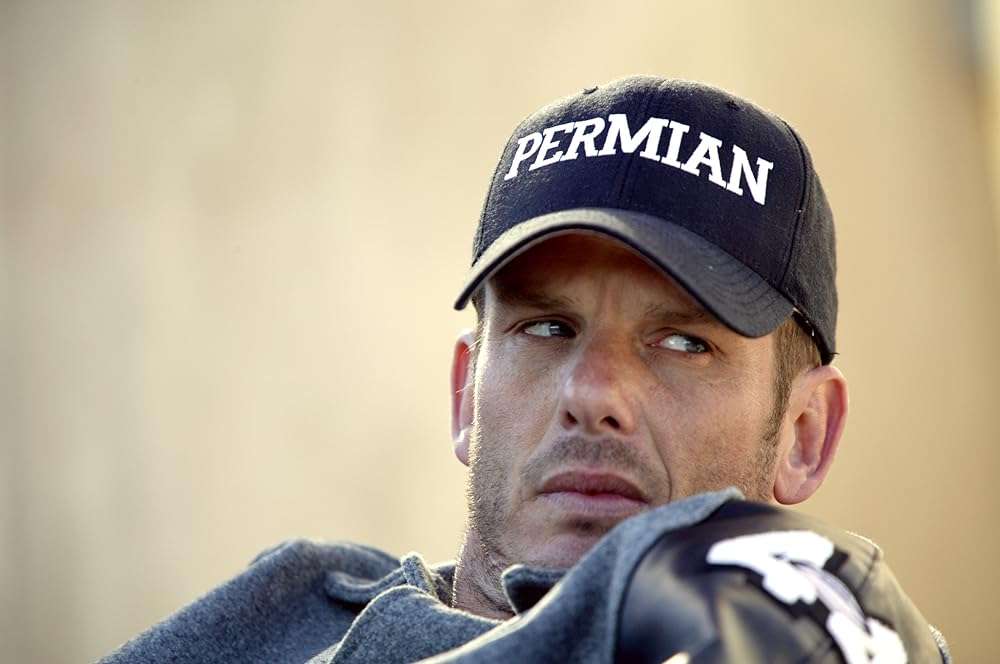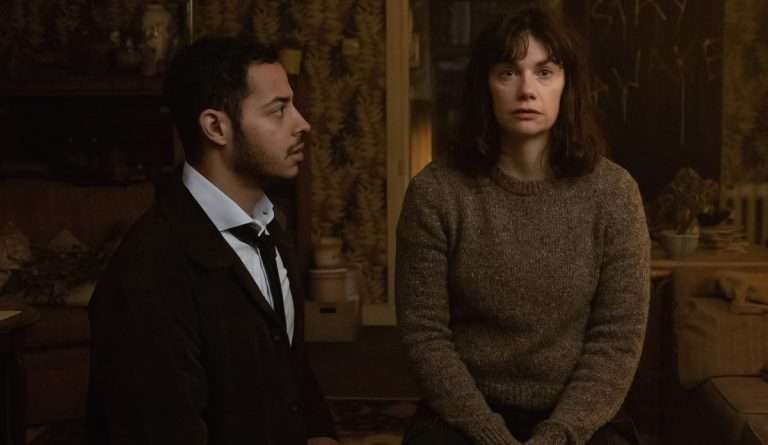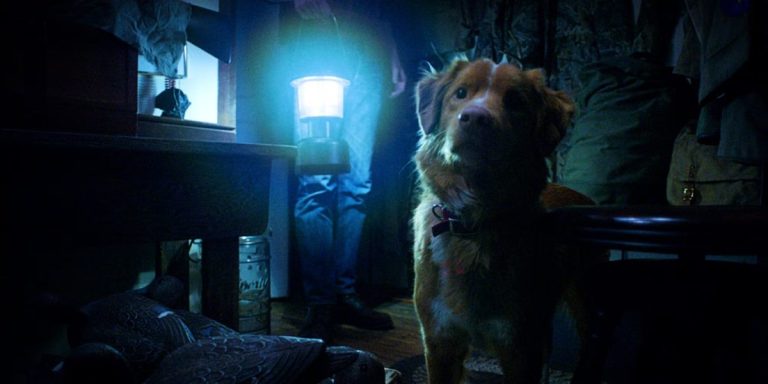Ironically far less popular than the Television spin-off it birthed, “Friday Night Lights” is a film steeped in College football culture and drama. This is clear from the opening moments that trace across the vast Texan landscape of Odessa. A radio show discusses the state championship chances for the 1988 Permian High School Panthers. The film, based on a book about a true story, intercuts the inspirational landscape scenery mixed with slow-building drums.
Director Peter Berg lays it clearly within these opening few seconds to highlight how deep football culture runs in Odessa, as well as how vital the game is for a better life for those who play it. Mike Winchell (Lucas Black) is the captain, burdened with his mother’s ailing health as much as the responsibility to propel himself into a scholarship through the game. James ‘Boobie’ Miles (Derek Luke) is the star running back for the team, a beacon of hope amidst the small African American community within Odessa. The first interaction between the team in the locker showcases how his superior skills hold up the team, but they are also infuriated due to his puffed-up confidence and fun-loving personality.
These two leads contrast with the rest of the team and their stern, determined Coach Gary Gaines (Billy Bob Thornton). Their pre-season training session is where Berg sets up almost all the elements that will form the narrative and its drive. Handheld camera work is utilized to give “Friday Night Lights” tension and kinetic energy. The editing rapidly cuts from the players’ sessions to their media interviews on the field and the crowd at hand, already excited for the coming games.
The stirring band music ramps up this tense vibe. The dialogue writing contrasts the players discussing their potential successes and the teams’ brotherly spirit against moments of confrontation within. More characters are highlighted, relationships are made clear, and themes come to the fore. Boobie’s Uncle acts as his hype man for recruiting scouts.
Chris Comer (Lee Thompson Young) is a ditzy backup to Boobie, looking to be a featured player, and Brian Chavez (Jay Hernandez) is a wise player that keeps the other’s emotions in check. Above all, there is Donny Billingsley (Garrett Hedlund), a flawed player living in the shadow of his abusive alcoholic father, and Charles Billingsley (Tim McGraw), a former state champion. The past glory of a state championship hangs over the heads of the key protagonist, a microcosm of the entire city’s hopes for the teams’ victory.
It highlights the film’s key themes, promise, and, most importantly, pressure. Like an albatross, the championship ring that past players wear constantly weighs heavy, a visual metaphor captured throughout “Friday Night Lights.” On the other side of that ring is the idea of promise that the glory of winning holds. Berg and co-writer David Aaron Cohen find fascinating irony in the young men’s hopes for the championship leading to a better life, while past champions are stuck in the past.
Even though much of “Friday Night Lights” depicts the idea of the sport with earnestness, especially in fostering community, it also plays a little bit with the satire. This is mainly seen with Gaines, navigating the struggles of coaching this underdog team while bearing the brunt of the public’s anger and desire. Gaines is bombarded with suggestions by upper-class women on how to play his defense and star player, Miles.

Miles’s role, in many ways, also crudely navigates the subject of race within the narrative, something Berg isn’t deft at handling even when overlooking his politics. The screenplay lacks the depth with which author HG Bissinger highlighted the tensions that stemmed from the multiracial team and the society surrounding them in Odessa, Texas. Boobie Miles’s personal story, though, is touched with great emotion; especially when a horrible injury causes struggle as he is ruled out from the game. It’s a tragedy that rests on Derek Luke’s moving performance, especially as he packs his bags with a winsome smile before breaking down in his car.
The rest of the cast gets their own little moments to shine, Thornton remaining the standout as the stoic Coach facing threats and delivering hard speeches. The screenplay does enough to move the plot along, giving the characters barely etched sub-plots for the actors to lift the material. The only wasted performer is Connie Britton as the coach’s wife, who has a more substantial role in the spin-off series of the same name.
In terms of craft, director Berg translates much of that energy in the opening scenes to the rest of the film. The camera speeds by when scenes grow dramatically intense, cutting close up and then wide to the surroundings to let the beats sink in. In that sense, the score and soundtrack maintain the tempo. However, this filmmaking language becomes overbearing. The shaky camera style is reminiscent of action films from the 2000s and really becomes a problem during the Football sequences. There is no sense of engagement, especially as we zip by almost all of Permian’s exploits with the typical sports montages.
As much as a connection is built towards the characters, their goal feels robotically disenchanting. We understand the pressure the world puts on them, but we do not get to fully comprehend why they care so much. That sense of greatness Berg attempts to create, showing how the sport is spiritual, is worsened by his messaging in the climax. Having built up the team and the protagonists as underdogs, especially in terms of size, the final sees them facing the mighty Dallas Carter Cowboys.
It’s the archetypal David versus Goliath story, yet Berg haphazardly places race as a significant element in the situation. The Cowboys are accurately portrayed as an all-black high school, yet between their coaches and players, the contention regarding race is played like a negative. Visuals from the way the cheerleaders and players are presented to the actions of the sly coach make it feel as if they are othering the opposition team.
It’s hard to overlook, even after the endearing climax that sees the protagonists lose but freed from the burden of expectations. In many ways, Berg’s “Friday Night Lights” falters because of his failure to completely execute his intentions and, in turn, let his characters breathe. This is something the ensuing series would pick up on, with the space afforded in that format allowing the writing to deepen its impact. Perhaps, then, it isn’t really ironic that the film that birthed the cult series isn’t as fondly remembered.






